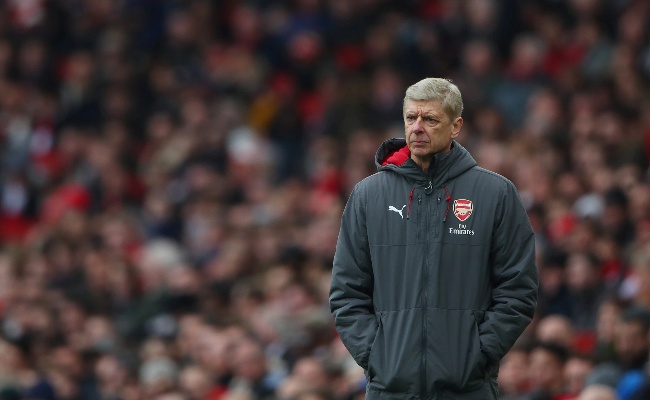views : 865
4 Min Read
Top five managers with the most FA Cup titles
The oldest football tournament in England, the FA Cup, has remained one of the biggest stages for defining managerial greatness since its inception. The masterminds from the sidelines have etched their names into football folklore with their success in the prestigious competition, attended by royalty. From the Victorian era to the modern times, the FA Cup has seen small clubs pulling off upsets against arch rivals fighting tooth and nail to lift the title. The managers played a big role in navigating the unique challenges that the competition has thrown at them. The competition in itself is democratic, allowing not only all clubs but also managers to have a shot at the glory.
Here are the top five managers with the most FA Cup titles:
1) Arsène Wenger - 7 titles - (1998, 2002, 2003, 2005, 2014, 2015, 2017)
Known for revolutionizing English football, the Frenchman transformed Arsenal into an FA Cup-winning machine with seven titles over two decades. Wenger’s 2002 victory formed part of his second domestic double after he defeated Chelsea 2-0 through stunning goals from Parlour and Freddie Ljungberg.
The dramatic triumph of the Arsene Wenger era was in 2014 when he broke the nine-year trophy drought of Arsenal with Aaron Ramsey scoring an extra-time winner against Hull City. This win revived Wenger’s tenure at Arsenal, leading to two more FA Cup wins in his final years. His attacking football proved perfectly suited to Wembley’s expansive pitch, where the Gunners consistently produced their best performances regardless of the form in the English top flight.
2) George Ramsay - 6 titles - (1887, 1895, 1897, 1905, 1913, 1920)
The Scottish legend George Ramsay transformed Aston Villa into a trophy winner with six FA Cup titles in his remarkable 42-year tenure. Managing the sides over multiple decades, he won his first ever FA Cup title in 1887 when Villa was a national force as they went on to defeat West Bromwich Albion 2-0 in a replay at the Kennington Oval. George Ramsay’s best campaign was in 1905 when Villa overcame the Magpies' challenge with a 2-0 score despite facing a stronger opposition. Unlike modern-day managers, Ramsay was a secretary-manager who also handled the administrative duties. His record stood firm for over a century until Arsene Wenger broke it in 2017.
3) Sir Alex Ferguson - 5 titles - (1990, 1994, 1996, 1999, 2004)
Who doesn't like Sir Alex Ferguson? The fiery Scotsman who went on to dominate the English Premier League also dominated the FA Cup with five titles. He came closer to equalling George Ramsay’s record but could not. The FA Cup formed the cornerstone of his Manchester United dynasty, where Mark Robins' goal in 1990 saved his job against Nottingham Forest.
Sir Alex Ferguson’s best FA Cup moment came in the 1999 semi-final, where Ryan Giggs’ solo goal propelled Manchester United towards their historic treble. Unlike his predecessors, Sir Alex Ferguson balanced his European commitments with the changing nature of the league as well as domestic trophies. What differentiated Sir Alex Ferguson from others was his ability to motivate the players to feature in cold January and win it from there.
4) John Nicholson - 4 titles- (1899, 1902, 1915, 1925)
The longest-serving manager for Sheffield United, John Nicholson built an Edwardian powerhouse through tactical innovation and discipline. He won four FA Cups during his time with the Blades during an era of northern industrial football dominance. His greatest triumph was in 1915 when the players during World War I wore military uniforms to defeat Chelsea 3-0. Despite having no playing experience, Nicholson revolutionized the training methods, placing heavy emphasis on fitness and teamwork. Despite the league struggles in 1925, he went on to win the final against Cardiff City at Wembley while operating with minimal resources and boasting local talent.
5) James Fielding - 3 titles - (1884, 1885, 1886)
The Victorian pioneer created football's first great dynasty at Blackburn Rovers, guiding them to an unprecedented three consecutive FA Cup victories between 1884 and 1886. This is a record that's never replicated. Fielding's most impressive triumph came in the 1886 final when his team defeated local rivals West Bromwich Albion 2-0 at the Kennington Oval, completing their historic "three-peat." Unlike modern professional managers, Fielding served as a voluntary administrator-coach while maintaining his primary career as a solicitor.
His revolutionary approach emphasized collective team play over individual brilliance during an era when tactical instruction remained rudimentary. Fielding's success fundamentally shaped the emerging role of football management in Britain, establishing organizational structure and strategic preparation as essential components of victory.
